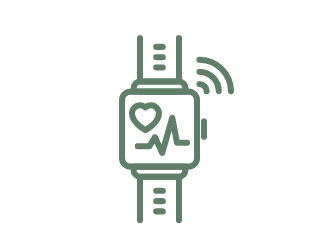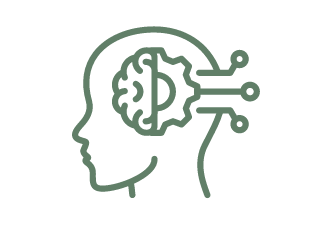Integrative Psychiatric Care
Science-Rooted, Soul-Led Mental Health for High-Performing Adults
You've tried medications, therapy, and wellness routines, yet something still feels off. Traditional psychiatry often treats symptoms in isolation, overlooking the intricate connection between your mind, body, and spirit. You're seeking care that sees the whole you.
Call to book an appointment (512) 766-3061 or fill out the form below.
What is Integrative Psychiatry Care?
Integrative psychiatric care looks at more than your symptoms — it looks at you.
Your biology, your story, your stress load, your environment — all of it matters. This is care that works with your body, not against it, so healing can happen.

Who Should Consider Integrative Psychiatric Care?
Adults facing anxiety, burnout, or emotional disconnection
Women whose experiences have been overlooked or misdiagnosed in traditional care
High-functioning individuals who feel stuck despite therapy or prescriptions
Anyone seeking personalized, root-cause care, not another symptom patch
What Your Integrative Psychiatric Care Looks Like
1 - Comprehensive Intake Form
You'll begin with a detailed intake that captures your full psychiatric history, physical health, lifestyle, and treatment goals. We also review past records and current medications or supplements to understand your baseline.
2 - Root-Cause Evaluation
We look beneath the surface — exploring nervous system patterns, inflammation, hormone shifts, chronic conditions, and other factors that may be impacting your mental clarity, energy, and emotional regulation.
3 - Personalized Care Plan
You’ll receive a tailored plan that may include thoughtful medication management, therapy, nutritional support, and collaboration with your wellness team. Ongoing connection is available through our secure patient portal.

about
LAUREN WILLIAMS, M.D.
Board-Certified Psychiatrist | Functional Medicine Trained | Trauma-Informed
I’m a firm believer that real healing happens when we stop chasing symptoms and start listening to the deeper story. My work is guided by curiosity, clinical precision, and a fierce commitment to seeing the full human being in front of me, not just a diagnosis. This isn’t conventional psychiatry. It’s soul-led, science-rooted care for those who are ready to heal at the root.

Pricing & Packages
-
Adult Intake, 90 minutes
Medication Management, Integrative Approaches, and/or Psychotherapy
$693
-
Follow-up, 60 minutes
Medication Management, Integrative Approaches, and/or Psychotherapy
$548
-
Follow up, 25 minutes
Medication Management, Integrative Approaches, and/or Psychotherapy
$278
Become a patient today
Intake Appointment
This is for individuals looking for ongoing mental health care. As well, patients who have complex medical histories also book this type of appointment to obtain a consult.
Integrative Psychiatry: Frequently Asked Questions
What is an integrative approach to mental health?
An integrative approach to mental health combines conventional psychiatric treatments with holistic therapies. It considers the full person, including biology, environment, trauma, lifestyle, and spiritual health, to create personalized care plans rooted in both science and whole-person healing.
What is an integrative mental health professional?
An integrative mental health professional is trained in traditional psychiatric methods and holistic care strategies. They may use medication, therapy, nutrition, mind-body practices, and functional medicine tools to support mental wellness at the root level.














